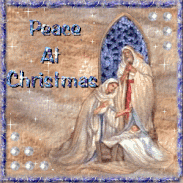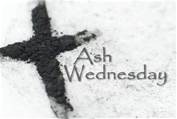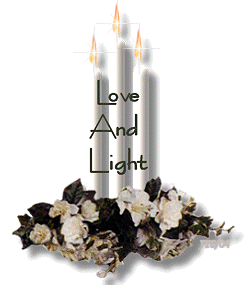 Forthcoming EventsTwo of our readings today include Weddings. In our first reading we talk about a wedding between Israel and God. As Israel returns from exile in Babylon, God forgives and forgets the past and calls Israel his bride “for the lord takes delight in you and your land will have its wedding. The relationship between God and Israel has been changed. And in our Gospel reading from John, we talk of the wedding at Cana in Galilee This is a wedding that both Jesus and his mother have been invited along with Jesus’s disciples. The main story though, is on Jesus and his Changing of water into wine. Not just a few bottles but six large stone water jars, each holding about 30 gallons, in my reckoning that’s equivalent to about 900 bottles of wine. (What a party! ). Of course the real reason that this wedding at canna makes it into John’s gospel is not for the wine and the party, but because it was the first miracle performed by Jesus, he performs his first of many more miracles to come, and his disciples had witnessed it. He had revealed his glory, this event would Change how they saw Jesus, and he would now begin his campaign a campaign that would eventually take him to the cross.. And we know now just how much this has changed the world we live in. Both the Weddings in the readings are about change, they are about new beginnings. Change is usually for the best, but it is not always easy. Ask any parent when their first child is born whether change is easy, their lives are turned upside down with sleepless nights, feeding, continuous nappies to change, and all the other situations that happen when a new baby enters into their lives. But ask them if they would change what they now have for what they had before and I am sure that most if not all of them would say no. The marriage of two people is perhaps the most intimate of personal relationships we can have, these two people are changed a change that will mature, as time goes by, ever deepening and more fulfilling. This change is mentioned in Genesis “Therefore a Man leaves his Father and Mother and clings to his wife and they become one flesh” (G2:24). Two joined together in wedlock becoming one flesh. Two become one (I am sure there is a song dying to come out here) ,Even the relationship between mother and child cannot equal it. And so if we can see such positivity in change why is their always a temptation to try and resist it? Some years ago Aldi supermarkets ran an advert campaign (other supermarkets are available) they showed you a leading brand and then an Aldi cheaper equivalent and the caption would be “I like this one but I also like this one, I like change” showing that the cheaper one was just as good as the leading brand was. ( I think the most memorable of the is set of adverts was the old lady holding up a branded box and non-branded box of teabags and saying my Husband likes these and he also likes these but I don’t like tea, I like Gin.) Now I am a bit of a stickler when it comes to food brands I like my cornflakes with the rooster on the packet, my rice crispies need snap, crackle and pop,and my cans of beens need to be endorsed by a million housewives every day. I was not keen on the Aldi equivalents and the same went for soup, butter, bread etc.etc. My children a lot younger then, were quick to pick up on this and they would start picking up various brands whilst in the supermarkets, and would find it hilarious to try and mimic me by saying” I like this one but I don’t like this one, I don’t like change” this is still a standing joke in our house to this day. All a bit of fun, but actually I suppose like many I was to a degree opposed to change, I liked things the way they were. And we can see this in society today all the time. And I don’t just mean the old man that must have his breakfast at 7:30 every morning, or the neighbour who gets upset that the local post office is closing at 5:30 instead of 6:00pm. I would imagine you all know people that are set in their ways and resist even these minor changes. But these are not the sort of changes we should be concerned about. We resist changes being made in our own interests, like the changes we are asked to make in order to try and slow down the spread of corona virus. We watch on as our planet faces one of the biggest environmental crises in its history. But we refuse to see or accept any need for change foolishly believing it will sort itself out. Even as global warming becomes blatantly obvious we continue to turn a blind eye. “there’s no need to change, nature has a way of sorting things” We fail to see the need for change as thousands of animal species face extinction or have their habitats destroyed to provide for our ever demanding consumption. We are not prepared to share our wealth and way of life in order that others may be brought out of hunger and poverty. Governments continuously need to change, countries continuously need to change, we continuously need to change and our attitudes to these ongoing topics need to change It is the rule of life, the cells in our bodies are constantly changing and renewing, the seasons must change Change is not all bad, change can be good, Change is good. Like a good marriage there will be ups and downs. As we make these changes not everything will always run smoothly, Change is by no means easy and we could be in for rough times but eventually it is usually for the best. Maybe our generation will not live to see the benefits, but future generations, our Grandchildren, possibly even our own children will. Since the beginning of time we have been changing and adapting. The Bible repeatedly tells of change, just a couple of weeks ago we celebrated an event that changed our very relationship with God; we welcomed God in human form as a fragile baby. The word became flesh. Today as we celebrate Mass, Bread and wine will be transformed (changed) into the most precious body and blood of our lord and saviour Jesus Christ. And we eagerly and reverently approach his alter of to consume that precious body and drink that precious blood as we strive to be “changed” to become more like Jesus, to become better Christians. In a few more weeks we will enter into lent when we will prepare ourselves throughout the Lenten period, yet again preparing for a life changing event, and we shall live out this event as we enter into holy week. That small helpless babe we welcomed into the world is now going to once again, change our futures, he will go to the cross totally innocent and without sin of his own, but he will take with him all the sins of humankind and he will pay (for us) the ultimate price. But we as Christians know that his death was not the end, conquering death he will arise again victorious changing deaths grip over us forever, death will no longer have any claim on those of us who have believed in Jesus. My dear Brothers and Sisters, However hard it may be to embrace the changes we will need to make over the coming years, we must all think of the future generations, and we must remember the changes made for us by God the Father, Son and spirit. And most of all we must continue to trust God and his mercy and know that his love for us will be the one thing we can rely on that will never change.  A happy and safe new year to you all. Forthcoming Events Thursday 6th Jan Communion at 10.00am. Sunday 9th Jan Parish Mass at 9.30am. The coffee mornings will resume after the Christmas break in the Church Mice cafe (in the Narthex) from 10.00am on Tues 11th January and every Tuesday thereafter. Sermon: Second Sunday after the Nativity "The Word was made flesh and he lived among us”. In the year when I left the College of the Resurrection and was ordained deacon – 1995 – there was a song in the charts by Joan Osborne. It seems like yesterday, but it’s more or less 26 years ago. The song was called: “What if God was one of us?” It asks a few hypothetical questions, like how we would address him, what we would ask him and what he would look like. There’s no harm in pondering these things and maybe some of our answers might shed light on how we see God and how we understand our relationship with God. But surely the most comprehensive and majestic answer to that question, “What if God was one of us?” is found in the prologue of St John’s gospel which we have heard just now. Those two words, “What if?” are answered by the awe-inspiring message that the power and the majesty of God has appeared in our world first of all in the form of a tiny child. Through him he light of God shines in the darkness of our lives and nothing can overcome that light. The pure truth that overwrites all the deception that surrounds us is there for us to hear. Perhaps most amazingly of all, the presence of God in our world in the form of Jesus gives us the grace to become what we are intended to be: God’s sons and daughters; brothers and sisters in Christ. As the song goes: “What if God was one of us, just a stranger on the bus?” Well, for the people who were first expecting the Messiah, it seems that he was treated as a stranger. The gospel tells us: “He was in the world that had its being through him, and the world did not know him. He came to his own domain and his people would not accept him.” Perhaps their idea of what God is like was too conditioned by their own prejudices and standards. The Messiah would never have grown up in a minor town like Nazareth. He would not have had ordinary parents. He would not have called fishermen to be his followers. Nor would he have lingered in the company of tax collectors, publicans and prostitutes. God would want to limit himself to respectable people like them and us. Is it really much different today? People expect to be impressed. They want their opinions and their outlook to be confirmed. All too often we don’t want to be challenged or to be taken out of our comfort zone. From childhood upwards, Jesus breaks the mould and whilst some welcomed his message, many turned away or were hostile. He did not come to impress or to overpower us, but to live alongside us and to show us what God is really like. Although he performed miracles, these were not done for effect, but to reveal the healing, forgiveness and compassion of the God who is our Creator. Even in the manger in Bethlehem, Jesus revealed himself in poverty. He showed his love by embracing our humanity in all its limitations, its weakness and its woundedness. He showed us that he did not consider equality with God something to be grasped, but made himself a servant: the Servant King. As St John Henry Newman put it: “He had once meant to come on earth in heavenly glory, but we sinned: and then he could not safely visit us, except with shrouded radiance, and a besmirched majesty, for he was God. So he came himself in weakness, not in power.” So we don’t need to ask, “What if God was one of us?” He is one with us in Christ Jesus. If God had come among us in power and might, his glory and light would have overcome us. We are not yet ready for that. But the light that was there at the beginning of creation shines in such as way that we can receive it. That light leads us on through the darkness that is within us and around us. The truth of God gently leads us away from falsehood and enables us to hear and accept the message of eternal life. In all our weakness and wrongdoing, the compassion of God comes to meet us and lifts us up to see salvation. Let us pray: Loving Father, your Son Jesus was born to save a fallen world. Rescue us from the ways that lead us into ignorance and harm and help us to walk the path of life in the company of your Son, our Saviour, Jesus Christ. Amen. .  Forthcoming Events Services: Thursday of Christmas Octave 9.30am (30th Dec) Sunday 2nd January Parish Mass 9.30am There will be no Tuesday coffee mornings over Christmas and the New Year but they will resume from 11th January 2022. Christmas Message I hope you have enjoyed unwrapping whatever it is that Santa has brought for you this year. Or maybe you are one of those people with enough self-control to leave it until late morning or afternoon? If you have been giving presents yourself, I do hope that you are better at wrapping them than I am. Usually it ends up being a shapeless bundle, with the starting point of the Sellotape almost impossible to find. At least it makes it more difficult to guess what might be inside the wrapping paper. Today is a day to focus on God’s gift to us. We celebrate the gift of a child. A new birth is always a cause of celebration for a family, but in this case, the celebration extends far beyond the bounds of that original family. The gift is not inside wrapping paper, but bundled up instead in the traditional swaddling clothes. This child is the one who is proclaimed in the prologue of St John’s gospel as “The Word made flesh”. So we celebrate an unconventional present given to each and every one of us out of love. All of this was foretold in the scriptures. The gift of God was wrapped up in the words of the prophets and the story of ancient Israel. In the fulness of time the wrapping was opened up and the Word of God was gloriously revealed in human flesh. Jesus began his life in a manger, but he would grow to display the life-changing compassion of God to a world in need. Through him, the grace of God would enter into human life. Still today we receive that inflowing grace in the sacraments and especially as we receive the Body and Blood of the One we worship. In case you haven’t noticed, the days have become murky and there is not a great deal of daylight. This makes it all the more special that at this time of year we rejoice in the light that has entered into the world, because: “The Word was the true light that enlightens all people and he was coming into the world.” Just a few weeks ago we were exploring what it means to be lights for Christ and to adopt a rule of life to enable that light to shine out from our lives. As John’s gospel says about John the Baptist: “He was not the light, only a witness to speak for the light.” In the same way, we are not the light but we can invite the light of Christ to shine through a life of faith so that we witness to his presence among us and his love for the world. In Jesus we see the nature of God revealed through humility, truth and compassion. His coming was the good news we hear about from the prophet Isaiah. But the birth of Christ is good news in every age. In the Incarnation we glimpse the glory of God in human life. No matter what struggles we face and no matter how wounded our world appears to be, God is with us, because Christ is born to us. The gifts we receive this Christmas are as always tokens of friendship and generosity. This is a wonderful time of year in which we can spend a bit more time with our families and our friends. But all of these things grow our of God’s generosity to us and that gift at the first Christmas which continues to enrich our lives. The gift we celebrate today is one of pure love and self-giving. In the words of the well-known carol, O Little Town of Bethlehem: “So God imparts to human hearts the blessings of his heaven.” As we have received, so let us give, love in return for love. May the gift of this holy child bring blessings to each one of us, today and always. Amen.  Forthcoming Events Special St Andrews Saints Day Service Tues 30th Nov 12noon following the Coffee morning. Thursday 2nd December 10.00am Feria Sunday 5th December 9.30am Parish Mass Coffee mornings every Tuesday from 10.00am. All are welcome. ADVENT 1
“Watch yourselves”, says Jesus. “Stay awake.” I don’t know about you, but I find that I need a bit more help waking up at this time of year when it is cold and dismal in the mornings. I rely on my alarm clock a bit more than I do in the summer. It’s a clock radio, because I don’t like too rude an awakening. At times I have been tempted to get one of those alarms that you can throw at the wall and that just bounce off without breaking. But far better to be woken up by any kind of alarm than to continue to slumber and to miss important things. The wake-up call in St Luke’s gospel today comes at the end of a rather daunting list of things that Jesus says will come upon the earth and upon its people. But at the end of these things he does change to a more hopeful tone, when he says that this means our liberation is near at hand. It is clear that Jesus is not speaking to us as helpless bystanders in all of this. He is calling us to be watchful and to ensure that our hearts are not coarsened or our vision clouded by worldly preoccupations. This is not all about the future, but about the times in which we live. For this reason, how we are living now makes a difference, as does the condition of our hearts and minds. The dramatic language of the gospel today might not seem quite so far from our experience as it might have done, say, a couple of years ago. Our country and the wider world have been battered by a pandemic; it is not yet over, as the emergence of the omicron variant has helpfully reminded us. The clamour of the ocean and the waves can easily conjure up the imagery of climate change. It also brings to mind the displacement of people from various countries and the tragic drowning of people in the Channel in recent days. The words of Jesus seem to be urging us to read the signs of our times. We don’t have to think of these things as though they were heralding the end of the world. But if we pretend that these things have nothing to do with us and if we live our lives as though nothing had changed, then we are deep in slumber and need to wake up. The alertness and watchful spirit that Jesus is speaking about is also something that speaks directly to our own spiritual lives. In some ways, the church’s year can seem out of tune with the pattern of the world around us. Advent is a season for clearing a path and making a straight highway for the coming of the Lord, not only in the world around us, but first of all in our own lives. It is a time in which we are called to greater simplicity and to liberation from the cares and obsessions of a consumer-driven society. But we know that at this time of year, that consumer society is more hectic than ever – Black Friday is a striking reminder of that. We have to live in this world and there may be many things that we can rightly enjoy about it. Christians don’t have to be killjoys. But maybe we can ask ourselves whether this is the high-point of our lives – or is there something more important that guides our way of living? The prophet Jeremiah speaks of virtue, honesty and integrity – three things that can be sadly lacking in our political life, in the media and in our own culture. Even to mention those things today can make us seem self-righteous. But all who try to follow Jesus will know that first of all we have to start by being honest with ourselves. Integrity for Christians can only be gained by being honest about the steps we need to take to be more like the person we follow. There are always things in our lives that we need to put right. Advent is not as much of a penitential season as Lent and is more a time of hopeful expectation. Even so, we can make use of the means of self-examination and repentance that the church provides in the Sacrament of Reconciliation. We do not have to carry around with us a burden of guilt but can experience the inflowing grace of God that renews our lives from within. Jesus speaks of the anxieties that can so easily cripple us as we face an uncertain and sometimes threatening world. The antidote to that fear is love. So St Paul in the first letter to the Thessalonians voices a prayer: “May the Lord be generous in increasing your love and make you love one another and the whole human race as much as we love you.” Maybe we could try substituting the word “I” for “you” and make that prayer our own, as we pray that our hearts may become more hospitable and more generous. In this way we prepare not just for the celebration of Christmas but for receiving Christ once more into our lives. His love will make us new, shedding light and warmth into our hearts and into our relationships, so that we can be agents of change in our world today. The Body and Blood of Christ in the Eucharist is the sacrament of integrity – of wholeness and unity. Christ enters into our lives just as he came into our world when the “Word was made flesh and dwelt among us”. We can celebrate and enjoy the secular treats of this time of year. These are not all opposed to what we believe. But let’s set our sights higher as we look to Jesus for our liberation. In this beautiful, hopeful season, let’s remind ourselves that we are a people of hope in a world that stands in need of that message of hope that Jesus brings.  Forthcoming Events: Thursday 11th November 9.30am Said Mass Saturday 13th November 9.30am AUTUMN FAYRE St Andrews Community Centre Remembrance Sunday 14th November 9.30am Joint Benefice Mass at St Peters Coffee Mornings are held every Tuesday from 10.00am Sunday Sermon: “Beware the scribes who like to walk about in long robes… to take the front seats in the synagogues.” I read that with a bit of self-awareness, since yesterday I was in cassock, surplice, scarf and hood at the Cathedral, for the installation of the new Dean of Sheffield, Abi Thompson. Yes, I was seated in one of the seats nearest the sanctuary – the canons’ stalls. But there were dignitaries present who were greater than I. At such events, the great and the good come to gather to welcome the newly appointed person. There is plenty of mingling afterwards, although I hope it wouldn’t have involved obsequious greetings of the kind that Jesus describes. Like the Temple in Jerusalem, of course, our Cathedrals are places where not only the so-called great and good come to gather, but where the poor, the homeless and the stranger can find solace. Our Cathedral is not one of the ones that charges an entrance fee, perhaps because there are fewer tourists than there are in some other cities and many people who have little. After warning his disciples against looking to the scribes for an example, Jesus sits opposite the treasury to observe the people coming in and throwing in money. The rich throw in impressive amounts of money, because they can afford to part with it and still have more than enough to live in luxury. The offering of the poor widow, which was two of the smallest Roman coins, must have seemed trivial by comparison. But Jesus sees it in a different way. He could see that this was all she had. Far from throwing in a token amount of money or some left-over change, she had made an offering of her own livelihood – her very own self. It’s not really possible to know the tone in which Jesus spoke those words, but I can easily imagine that they were spoken with passion. The offering made by the widow in some way points to the offering that Jesus would make. The letter to the Hebrews speaks of the sacrifices that were offered in the sanctuary day by day, offerings of animals as tokens of thanksgiving and repentance. Jesus makes a new kind of offering. Instead of bringing cattle or sheep, he brings his own self to be offered in sacrifice for the sins of the world. Jesus keeps nothing back and his self-offering is one which continues to give life and to bring restoration to fallen humanity and to a broken world. Our world is still broken and the signs of human sinfulness are never far from our eyes. We can see the examples of greed, corruption and inequality, not only in distant parts of the world, but also closer to home. Jesus spoke forcefully about the exploitation of the vulnerable, such as this poor widow. He saw how many of the rich people, including those who followed religious practices, were content to profit from the poverty of others. There is no doubt in what he says to his disciples about where Jesus sees the signs of true religion. The poor widow had something in common with the widow from Sidon, in the first book of Kings, who gave of the very little food she had left to share it with the prophet Elijah. She thought that it would be her final meal and yet she was prepared to share it. Sometimes it is those who have the least who are prepared to be truly generous. As Jesus teaches his disciples, our generosity is not measured by how much we give, but by how much we have left over. Billionaires can give away huge amounts of money and still live lives of great luxury. It is often the poor who know how to make real sacrifices, rather than just token offerings. The words of Jesus are not just about generosity, but also about justice. Exploiting other people and seeing them as expendable is a rejection of God’s kingdom. Jesus reaches out to the poor, the outcast and the ignored. They may have little, but they are precious in the sight of God. Jesus gave his life for us all, whether rich or poor, respectable or despised. As St Paul puts it in the letter to the Philippians, Jesus did not cling to his equality with God, but emptied himself. The widow’s humble offering is a sign that points toward the offering Jesus made of his own life. As we look to the sacrifice of Jesus we can give thanks that he gives us himself in the bread and wine of the altar that become his Body and Blood. As we receive these gifts we pledge to give of ourselves in his service and to discover both a hunger for justice and a spirit of generosity. Jesus seems to set the bar very high. Token offerings have no place in his teaching. God has given us his own Son and the only perfect response is to give all that we have and all that we are. This kind of generosity is something we are never likely to achieve fully in this world, but we can allow our hearts to increase as we look to Jesus and the eternal sacrifice that he has offered for us and for our world. The prayer of St Ignatius Loyola seems like a place to start: Dearest Lord, teach me to be generous; teach me to serve You as You deserve; to give and not to count the cost, to fight and not to heed the wounds, to toil and not to seek for rest, to labour and not to ask for reward save that of knowing I am doing Your Will. Amen.  Forthcoming Events 2nd Nov All Souls 12.00 noon 7th Nov Special Memorial Service 4.30pm 5th Dec Christingle 3,00pm 19th Dec Carol Service 4,00pm St Peters 24th December Vigil Mass St Peters (time tbc) 25th Christmas Day Mass 10.00am 26th Dec (Boxing Day) Normal Sunday Mass 9.30am Sermon All Saints Many of the saints we venerate today are represented to us as statues. In the present times, statues can be controversial things. You may recall that in June last year the statue of Edward Colston, seventeenth century merchant and Tory member of parliament, was toppled and thrown into Bristol Harbour. Although he was commemorated as a philanthropist, he also had involvement with the slave trade. Likewise, the statues of Cecil Rhodes and others have been called into question. Without getting into the political arguments, there are some who claim that the commemoration of such people is wrong; others that we should not erase our history or be ashamed of it. There is a more subtle argument that says that we can continue to recognise the place these people have in history and their good points, whilst at the same time acknowledging that not everything about them was praiseworthy by the standards of today. The saints we give thanks for today were flesh and blood just as we are. None of them were what we would call “plaster saints”. Every one of them has a backstory. Their journey into sanctity is one marked by struggle and by the need to repent and to walk in the way of the Cross. The former ways of life had to change and their highest ambition had to become that of growing more and more like Christ himself. When we look to Jesus we see both the fulness of humanity and the presence of God. He alone is sinless, whereas the rest of us, whether immortalised in statues or not, are in need of forgiveness and of the restorative power of God’s grace. Our lives tell the story of human fallibility, but at the same time, the light of Christ can be glimpsed through lives of faith. When Jesus taught the crowds up on a hill he was also lifting their field of vision to see humanity from a wider perspective. It was on a hill that Jesus himself was transfigured and seen in the light of God’s glory. This was a revelation of his true nature, but also a glimpse of what would lie ahead through the events of the Cross. It was a glimpse of a humanity that would be ransomed, healed, restored and forgiven – transformed by the risen life of Christ. Jesus teaches that the way to true happiness and a life blessed by God would not come by following worldly values. In fact, our expectations are inverted as Jesus teaches that being poor in spirit is the way to happiness, as is a hunger and thirsting for righteousness. Even being persecuted in Jesus’s name is given as a way to true happiness. The world seems to hold out something quite different. From a worldly perspective we might say: “Happy are those who seem to know everything, for they shall be admired. Happy are the pushy, for they shall get what they want. Happy are the greedy and acquisitive, for they shall live in comfort. Happy the troublemakers, for they shall divide and rule.” Jesus knew that none of these ways would bring peace to the soul or lasting joy. The saints we venerate today came to realise that too and let go of worldly ambition to follow Christ in poverty of spirit. It’s true that there are plenty of people in the world who are praiseworthy and who do good works for other people. Not all of them are Christian or religious at all. But the distinctive thing about the way of Christ is that we are taught first of all to know our need of God. Although the saints could be called heroes of the faith, they are not venerated first and foremost for human heroism. They knew their weakness and limitations and knew how wrong it would be to believe too much in themselves or even to take themselves too seriously. By going to God with empty hands and open hearts their lives were filled with God’s grace, in a way that brought blessings not only to themselves but to everyone they would meet. No amount of human goodness could be a substitute for this godly presence that changed their lives. The story of the saints is not so much a story of extraordinary lives, but of ordinary lives filled with an extraordinary grace. Like us, they listened to the word of God and allowed it to be fruitful in their lives. Like us, they received the Body and Blood of Christ and grew in the likeness of the one they were receiving. Also like us, they tried to reflect the love of God in the way they related to others. Whether or not this always worked out perfectly, they were steadfast in their faith, refused to give up and knew where true happiness came from. The saints remind us that we are, as the letter of St Jon reminds us, the children of God. This is not something we have to earn, but it is key to our identity. As the writer tells us: “… what we are to be in the future has not yet been revealed; all that we know is that when it is revealed, we shall be like him, because we shall see him as he really is.” Today, perhaps we could reflect upon the life of one of the saints who especially inspires us or with whom we identify in some way. Or we could just marvel at this great company of the blessed that we read about in the book of the Apocalypse. These are human beings like us. We too are called to be saints. We may never be remembered in an encyclopaedia of saints and we may not make anywhere near as good a job of it as they did. But as we ask for their intercession and we look to their examples, surely we can remind ourselves of our need for God and invite the light of Christ to shine more clearly through our lives. |
Saint AndrewI am a rather old Saint. Archives
July 2023
Categories |




 RSS Feed
RSS Feed